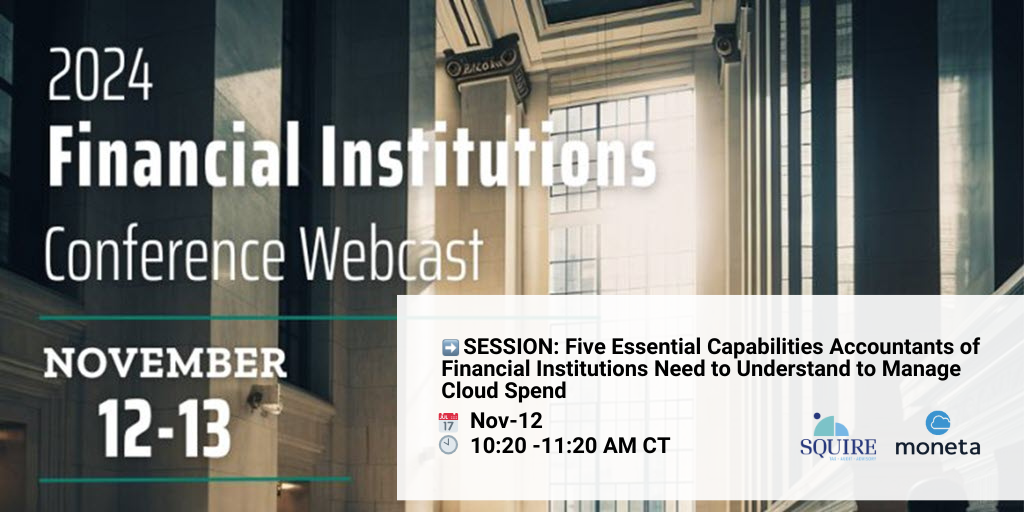Cloud computing has revolutionized how businesses operate, providing flexibility, scalability, and cost-effective solutions.
However, with the benefits of the cloud come the challenge of understanding and accounting for the related expenses. Organizations face the complex task of allocating cloud costs accurately to different cost centers. Let’s face it, when it comes down to understanding our business costs, it’s fuzzy math until we nail down our cloud costs.
Let’s explore the importance of cloud cost allocation, associated challenges, and effective solutions.
Why Is Cloud Cost Allocation Important?
Cloud cost allocation is the process by which businesses assign cloud costs different cost centers such as departments, products, or projects. These costs may involve data storage, compute power, bandwidth usage, and other resources cloud service providers offer. It’s like accounting for a manufactured product where we have many inputs contributing to the finished product. We must capture direct and indirect costs with our cloud spend and allocate those costs to the relevant cost center just like a finished goods inventory item.
The Need to Allocate Cloud Costs
Knowing the unit cost of a finished good item is required to understand the profitability of that product. The cloud is no different. Understanding how departments or products generate cloud costs is the same costing framework we, as CPAs, have been using since the green eyeshade made its first appearance. As businesses continue their shift towards cloud computing, the financial impact of cloud usage becomes an even greater concern. With proper cloud cost allocation processes in place, budgeting, forecasting, and clear profitability metrics can be easily produced.
Why is Cloud Cost Allocation So Difficult?
The variable billing nature of the cloud generates an overwhelming number of accounting transactions that must be understood and coded within the accounting records. Today, the coding (referred to as “tagging” in cloud language) is managed by engineers who are busy with their day job ensuring technology is sound, products are being released, and proper security measures are in place. Unfortunately, finance personnel don’t really understand the cloud or cloud finance and are, therefore, not able to properly contribute to cloud spend tagging. The result is an enormous pool of expenses with the accounting team left to determine where they belong (yea, good luck). Don’t destroy your ten-key just yet…. there is a solution!
Tips for Effective Cloud Cost Allocation
Just like with our accounting general ledgers, a sound cloud accounting framework must be developed. Like with our accounting systems, the cloud requires us to identify departments, products, projects, or other cost centers we would like to assign costs to. This framework then defines how each cloud billing transaction will be tagged allowing it to be assigned its proper accounting home.
Next, it’s time to tag each billing transaction. Tagging an individual transaction is simple, however, for a cloud user spending $1 million in the cloud could trigger 50 million lines of billing transactions. Fortunately, we have technology on our side to help auto-tag a large portion of the cost pool based on pre-determined criteria (i.e., Sally works on product Gizmo so all cloud services initiated by Sally is assigned the Gizmo product tag). Be creative with your engineering team and implement policies that both enforce tagging and allow flexible use by the technology team. It’s a process to get a sound tagging system in place so be patient, persistent, and look for ways to reward progress!
Finally, it’s now time to generate reports and see how things look. Put your Excel spreadsheet away if you spend any significant amount in the cloud. Excel has no chance against the size of many cloud billing files. It’s time for some tailored cloud financial management software. Each cloud provider offers some reporting you can use at little to no additional cost. I find it worthwhile to pay for a third-party solution that has more features and capabilities that help me better understand cloud spend. These solutions are similar to GL reporting packages being used by accounting teams today. Just like with our traditional financial reporting packages, it’s a constant process to refine, present, and adjust the reports to meet the specific needs of the organization.
How moneta Can Help
moneta trains finance and accounting professionals how to understand and optimize cloud spend. The combination of our cloud financial management and finance expertise allows us to bridge the gap between the confusing worlds of technology and finance. Please reach out if we can be of any help – contact moneta.




.png)
